NUTRITION & YOU OLDER ADULTS (65+ YEARS)



In Ireland, as in many countries, older adults are now the fastest growing age group in the population.
Getting older and staying in good health means it can be a time to embrace new opportunities and interests. Maintaining energy and vitality is key and a healthy balanced diet can provide the nutrients to help do this.
The Department of Health has provided additional nutrition advice to help address common age related changes. This booklet aims to provide an overview of these recommendations for healthy older adults. It also contains some helpful tips and practical advice from an expert dietitian.

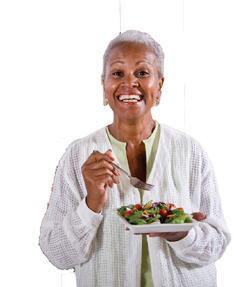
As we get older, it is essential to eat well. Energy and nutrient needs vary, depending on factors such as gender, age, body size and physical activity levels. In Ireland, we use the Food Pyramid as a guide to the types and amounts of foods needed for good health.
The Food Pyramid divides foods into groups based on the main nutrients they provide. It also guides on portion sizes and daily serving recommendations.
Speak to your GP if you have any concerns before making any major changes to your lifestyle.

Food Pyramid for Older Adults
A guide for adults aged over 65


Foods
drinks high in fat, sugar and salt

Foods from this shelf provide essential fats, but use these in very small amounts.



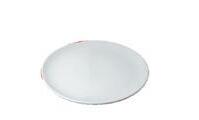











Meat, poultry, fish, eggs, beans and nuts
Foods from this shelf are the best sources of high-quality protein and iron, for strong muscles and healthy blood.
Milk, yogurt and cheese

Dairy foods are the best sources of the calcium you need to keep your bones strong. Low-fat is best. These foods are also high in protein.


Wholemeal cereals and breads, potatoes, pasta and rice








Choose high-fibre foods from this shelf to help prevent constipation.


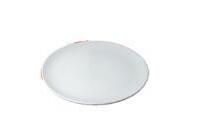



Vegetables, salad and fruit
Boost
your B vitamins B vitamins support brain
Eat enough high-quality protein in at least two meals a day

High-quality protein promotes and maintains good muscle strength as you age. Muscle loss can lead to frailty and a higher risk of falls so choose foods from the Meat (and alternatives) as well as from Milk (and alternatives).
NOT every day
In very small amounts
2-3 Servings a day

3-4 Servings a day
3-5 Servings a day
5-7 Servings a day
Be active everyday Small bouts of exercise for 10–15 minutes several times a day is much better than doing all your activity in one go. Strengthening exercises are also important.
Daily vitamin D You need to take a 15 microgram (μg) vitamin D supplement every day of the year. A good diet and sunlight is not enough to keep your bones strong and prevent falls.
Source: Department of Health/Health Service Executive 2023
Dairy is often associated with greenhouse gases, such as methane. While 14.5% of global greenhouse gases arise from all livestock, less than 3% comes from milk production2. Therefore, while dairy certainly contributes to the issue of global warming, it is not a leading cause. When the environmental impacts are weighed against the unique nutritional value, dairy is well placed to play a role in meeting the global need for sustainable food production. As a result, moderate amounts continue to be included in dietary guidelines for sustainable diets across the globe.
The matrix of nutrients in milk contributes to the normal functioning of many processes in our bodies:
Cognitive function
Thyroid function
Bone development
Healthy teeth
6
Normal skin
Healthy teeth
Reduction of fatigue
Red blood cell formation Immune system function
Iodine
Phosphorus
Energy metabolism Bone development
Calcium
Protein
Vitamin Potassium
Vitamin Vitamin B2
Bone development Muscle maintenance
Energy metabolism
Source: EU Register of Nutrition and Health Claims made on foods
Figure 5: Milk and dairy foods provide a rich matrix of nutrients which contribute to many normal functions in the body
*not a complete list of functions.
Source: EU register of Nutrition and Health Claims made on foods
2 FAO. 2013. Tackling climate change through livestock – A global assessment of emissions and mitigation opportunities. Rome.
Having healthy bones can make a big difference to the quality of our lives. While age-related bone loss is a natural process, it can result in fragile bones which are at an increased risk of fracture.
Although bone health is influenced largely by genetics, there are some steps we can take to ensure better bone health.
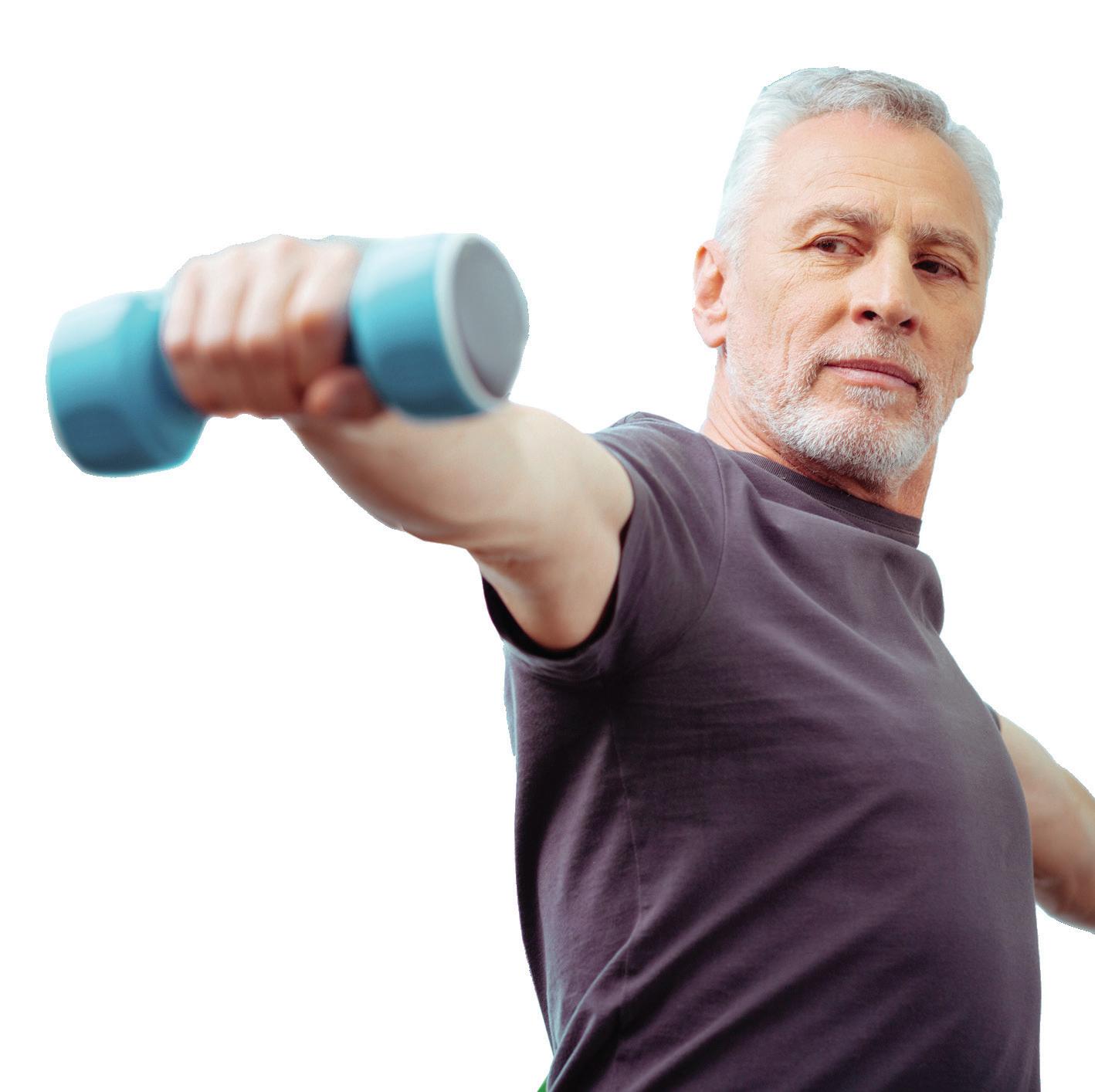
Tips for healthy bones
• Eat a healthy, balanced diet
• Have good sources of calcium and vitamin D in your diet (pages 8 & 9)
• Include protein rich foods e.g. meat, eggs, dairy, fish, beans, lentils regularly through the day
• Take part in daily weight-bearing exercise e.g. brisk hill walking, climbing stairs, light gym work
• Don’t smoke
• If you consume alcohol, do so in moderation
• Talk to your doctor if you have any concerns
For more see www.mindyourbones.ie
Calcium is essential for bones and it is important to have enough in the diet at all life stages.
3-4 servings of calcium-rich foods (milk, yogurt and cheese) are recommended every day by the Department of Health.
Dairy foods such as yogurt, milk and cheese are among the best sources of dietary calcium. The calcium in dairy foods is easily absorbed and used by the body.
Dark green vegetables such as broccoli, pulses such as beans, and nuts can also contribute to calcium intakes. The good news is that these foods can be used in cooking and baking as heat has little effect on the calcium content.
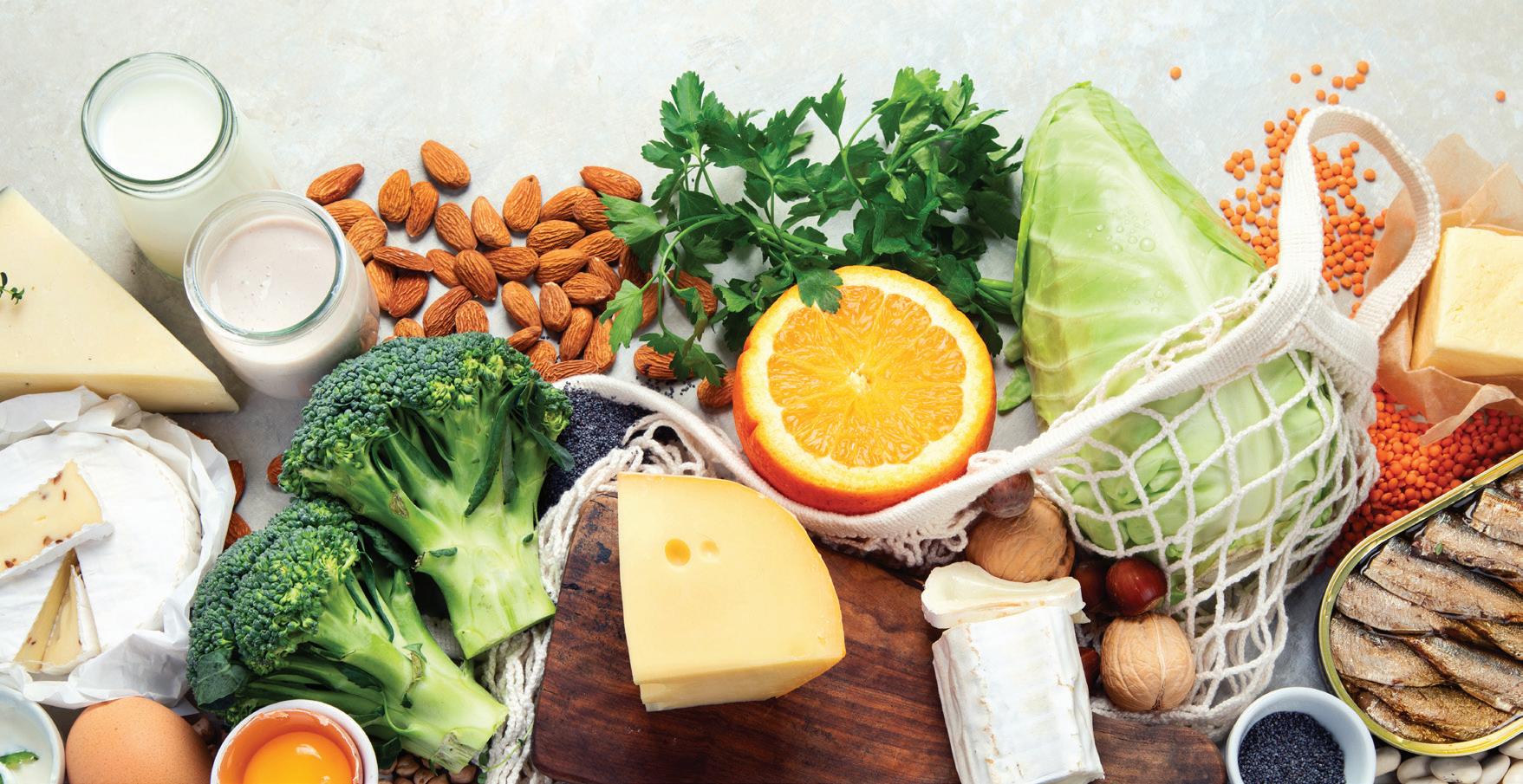
Vitamin D helps the body absorb calcium.
Vitamin D is known as the ‘sunshine vitamin’ because it is made by the action of sunlight on the skin. However, in Ireland, Vitamin D deficiency is common and most people do not get enough from sunlight or diet alone.
The Department of Health recommends that older adults take a supplement that contains 15 micrograms (15μg) of vitamin D every day.
This vitamin supplement can be taken in 3 ways: as a multivitamin supplement that contains 15 micrograms (15μg) of vitamin D; as a calcium and vitamin D supplement that contains 15 micrograms (15μg) of vitamin D or as a vitamin D only supplement that contains 15 micrograms (15μg) of vitamin D.
People who are currently taking a vitamin D supplement that has been prescribed by a doctor or a nurse and that contains more than 15 microgram (15μg) should continue to take only the prescribed supplement.
Older adults should also try to have foods that naturally contain vitamin D such as oily fish, eggs and foods that have vitamin D added, such as fortified milk, yogurt and breakfast cereals.
Healthy muscles keep you moving well. As we age, both eating protein along with physical activity is important to maintain muscle mass and function.
Healthy older adults should eat high-quality protein across the day.
Experts advise that for the body to best use the protein we eat, protein intake should be spread out across the day. This can be done by having protein at each of our meals. This includes meat, poultry, fish, dairy products, and eggs; and, to a lesser extent, beans, peas, lentils and nuts.
Tips to include protein in meals and snacks:
• Make fruit smoothies with milk or yogurt
• Sprinkle cheese over pasta or add to a sandwich
• Include hard boiled eggs/chicken/salmon in salads
• Drink a glass of milk with meals
• Have yogurt as a snack or add to fruit or cereal
• Add legumes such as beans and lentils to soups, casseroles or salads
Regular muscle-strengthening and balance exercises can be beneficial at all ages and are important for maintaining strong muscles.
Muscle strengthening activity includes digging, carrying groceries, step aerobics, hand-held weight exercises, or yoga.
Healthy teeth and gums are essential for eating well. Flossing our teeth every day and brushing our teeth twice a day helps keep our mouths healthy. Positive food choices can also support dental health:
Keep Smiling
• Frequent consumption of sugary foods and drinks is a main cause of tooth decay so limit how often you consume these
• Certain nutrients play a role in dental health. For example, calcium and phosphorus contribute to the maintenance of teeth. Milk, yogurt and cheese are natural sources of these nutrients
• If you have difficulty chewing, opt for lightly stewed fruit and vegetables instead of raw varieties
Visit your dentist regularly and especially if you are having any difficulty with teeth, gums or dentures

Staying hydrated is important for good health. It is common for older people to not feel thirsty and become dehydrated. Signs of dehydration include loss of concentration and alertness, headaches and constipation.
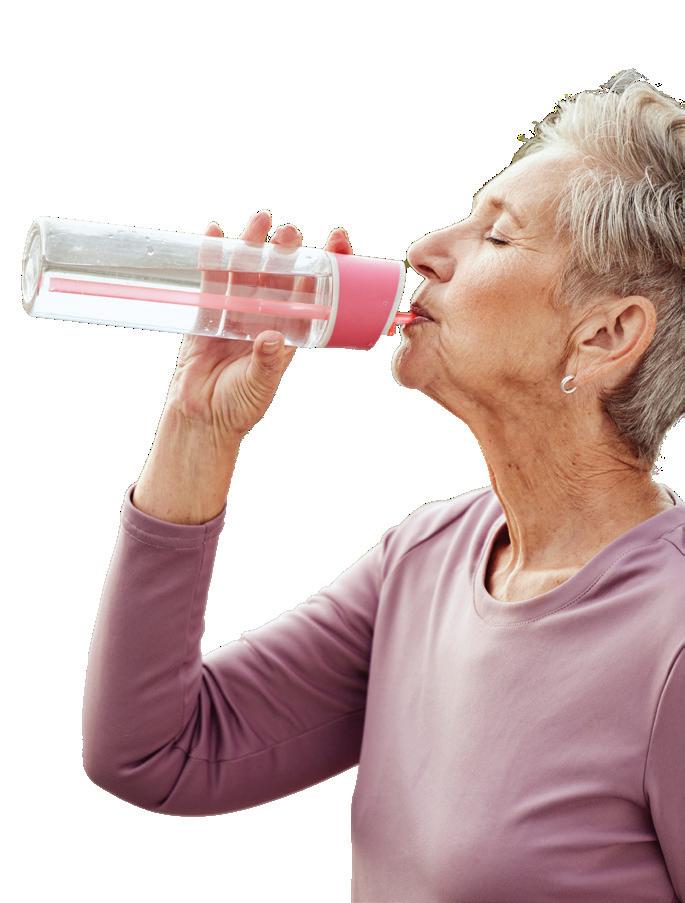
Women should aim to drink 6–8 glasses of fluids every day and men should aim for 8–10 glasses. Get into the habit of drinking water throughout the day.
Water, low-fat milk, tea and unsweetened fruit juice all count towards your daily total drinks intake. Milk provides the added benefit of a number of important nutrients.
Tea (with or without milk) is best had inbetween meals (and not with meals) as it can reduce iron and zinc absorption by the body. Also, caffeine can affect sleep so it is best to avoid this before bed.
Some foods will add water to your diet, such as soup, vegetables, fruit and yogurt.
Remember, alcohol can be dehydrating. The body has less tolerance for alcohol with age, and alcohol can also increase the risk of falls or accidents. The Department of Health recommends to keep alcohol intake to a minimum. See: www2.hse.ie/living-well/alcohol
Daily exercise, to whatever capacity possible, greatly enhances muscle and bone strength, manages body weight and improves heart health.
Aim for at least 30 minutes of moderate intensity activity on five days a week, or 150 minutes each week.
Moderate intensity exercise should cause you to become warmer and increase breathing and heart rate to a comfortable pace. Examples include: cycling (slower than 10 miles an hour), medium-paced swimming, brisk walking (a mile in 15-20 minutes), or general gardening activities.
If you time your activity before meals that include protein, this can help build muscle. Spread activity across the day remembering even small bouts of exercise builds muscle strength.


“It is never too early or too late to start thinking about nutrition for healthy ageing. Nutrition plays an important role throughout the whole life cycle. Start with just one thing from my list of top tips below”
1. Introduce variety. Having the same breakfast or lunch everyday can be a reliable habit but keeping meals varied will help to expand the range of nutrients you consume. It can also make meals more interesting. For example, boost calcium after dinner by choosing rice pudding, custard or some cheese with figs. When making larger dishes such as stews or casseroles, extra portions can be put in the freezer for a later date. This can also help to reduce food waste.
2. Remember your daily vitamin D supplement (15 micrograms (μg) as part of your morning routine, just like brushing your teeth.
3. Protein is not just for sportspeople or body builders. Older adults need to eat protein rich foods spread out through the day to ensure their muscles can carry out day to day activities. Ensure each meal contains a protein rich food. Try to include meat, poultry, fish, eggs, beans, lentils in
your meals or add protein to meals using milk, skimmed milk powder, cheese, yogurt, nut butters, hummus. For example, add peanut butter/ground nuts to porridge/cereal or add skimmed milk powder to soup/milk pudding/glass of milk.
4. Many older adults are affected by constipation as a side effect of some medications or if we do not have enough fibre and fluid daily. Increase fibre with wholemeal / wholegrain bread, wholegrain / oat-based breakfast cereals, wholewheat pasta, brown rice and pulses (beans, peas and lentils), fruit and vegetables.
5. Keep hydrated. Variety is the spice of life when it comes to staying hydrated! Fruit cordials, juice, tea and milk are all great fluid sources and come in lots of different flavours. Have a selection to hand to make drinking more interesting. Fluid rich foods such as soup, jelly, yogurt, rice pudding and cereal with milk can help to boost your fluid intake. For underweight, frail older adults, milky drinks are a useful source of calories and protein as well as fluid.
6. Taste buds become less sensitive with age. Trying new foods can stimulate the taste buds as you don’t associate a certain taste with the “new food”. Test new foods to see what you like. Addition of herbs, spices, citrus fruits to your usual recipes can change the taste and be a healthier alternative to salt.
7. Make mealtime a social event. Living alone has been found to reduce appetite, provide fewer social cues to eat and, generally, makes eating less pleasurable. Think about joining a lunch club and/or befriending service, for example Alone (www.alone.ie).
Weight loss is not a normal part of aging. If you are concerned and your clothes feel loose without any effort, you may be eating less nutrients and energy than your body needs to stay healthy. This can put you at increased risk of infection or illness.
If you or someone you know is losing weight without trying, you should:
• Monitor your weight and visit your GP to discuss if it continues
• Try to eat three small meals and three small snacks each day
• Consider having more calorific nourishing foods, for example: full fat milk, hot chocolate made with full fat milk, crackers with butter or cheese, full fat yogurts, rice pudding and custard
• Try fortifying foods. This means adding other ingredients to increase the calorie content but not the portion size, for example, the addition of cream into soup, grated cheese on potatoes, nuts on breakfast cereal.
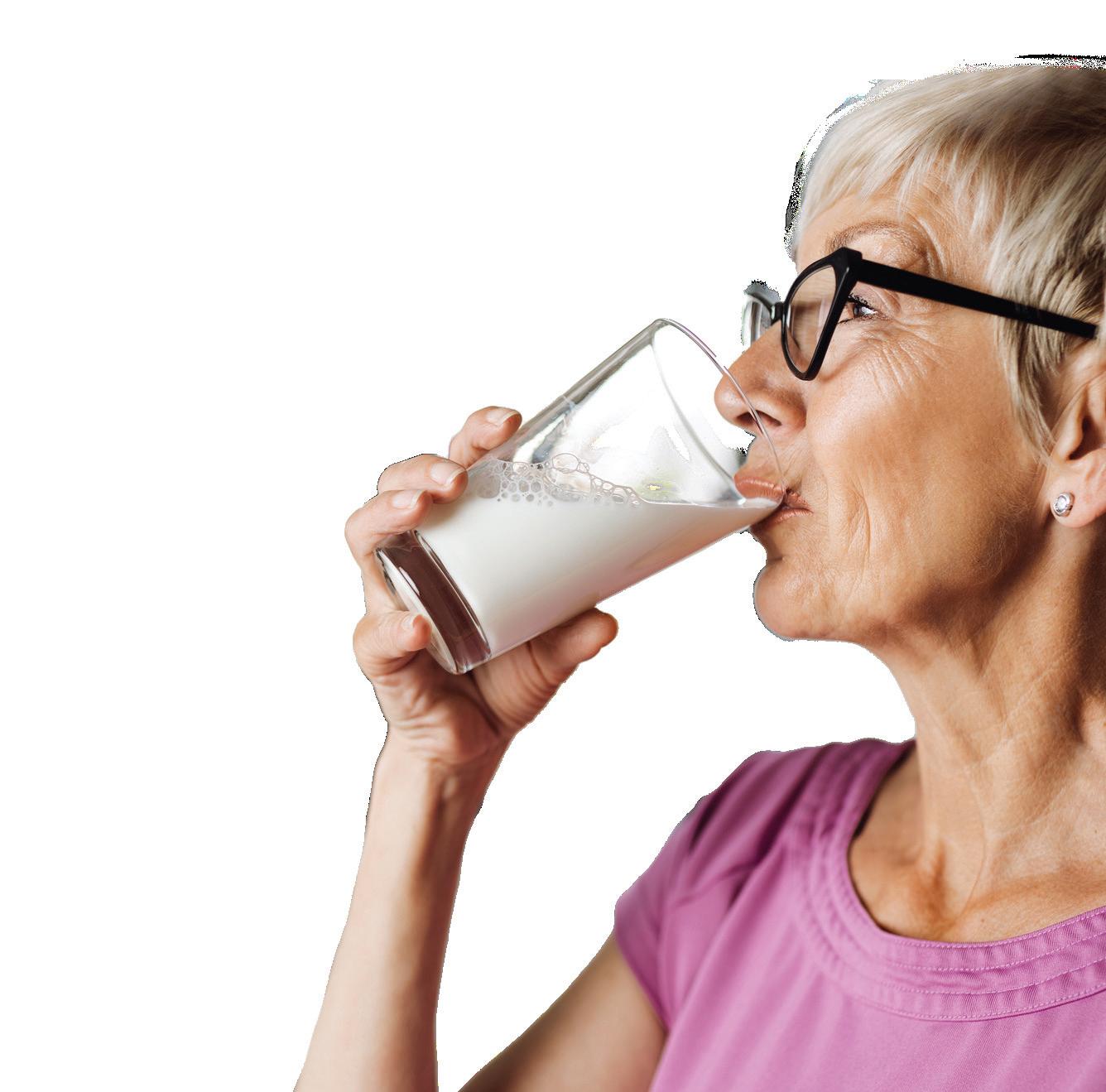
Irish dairy cows graze on luscious green grass for most of the year - making the quality and flavour of our dairy products internationally renowned. Ireland is one of the best places in the world for sustainable milk production. The grass based system is extremely efficient, resulting in one of the lowest carbon footprints internationally.
Source: Herron, J et al. Dairy Sci. 105 :5849-5869
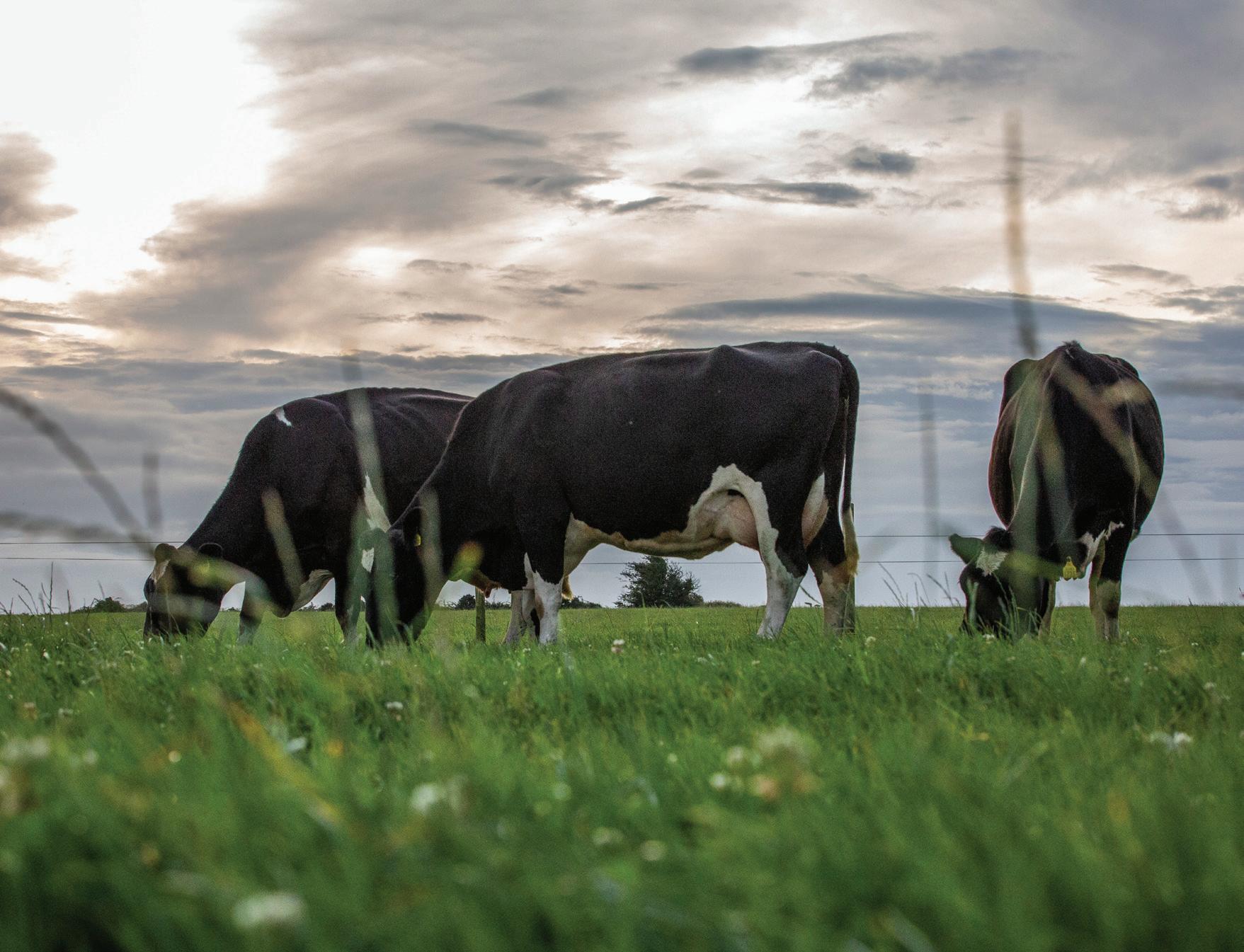
The National Dairy Council
www.ndc.ie
Irish Nutrition and Dietetic Institute – Factsheets
www.indi.ie/all-food-facts-and-fact-sheets
Safefood – Eating well as you get older
www.safefood.net/healthy-eating/healthy-food-and-you/ older-adults
Department of Health/Health Service Executive – Healthy Eating for Older Adults
www.gov.ie/en/publication/9791c-healthy-eating-forolder-adults
Dental Health Foundation
www.dentalhealth.ie
Irish Osteoporosis Society
www.irishosteoporosis.ie
Health Service Executive-Exercises for older people at home
www2.hse.ie/living-well/exercise/indoor-exercises-olderpeople